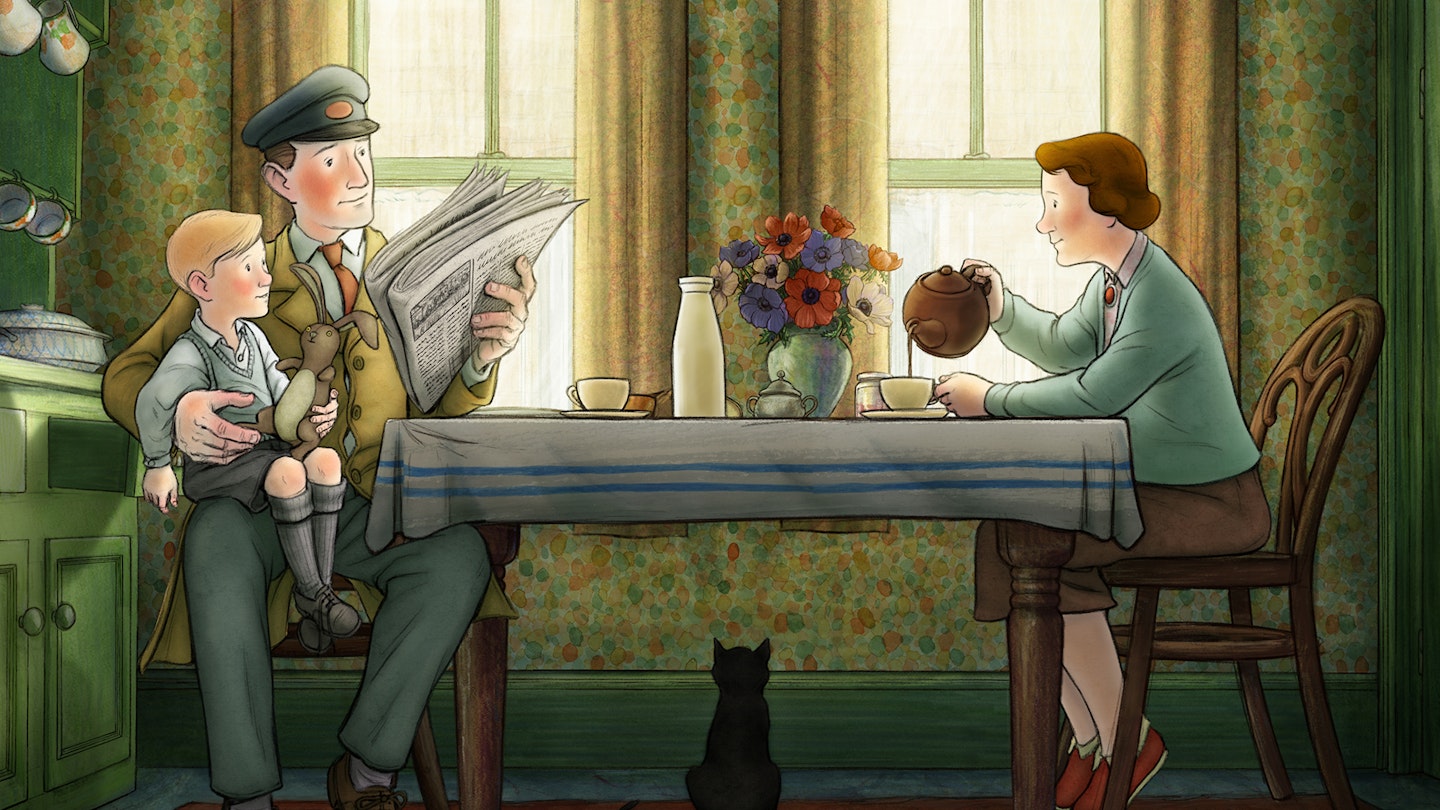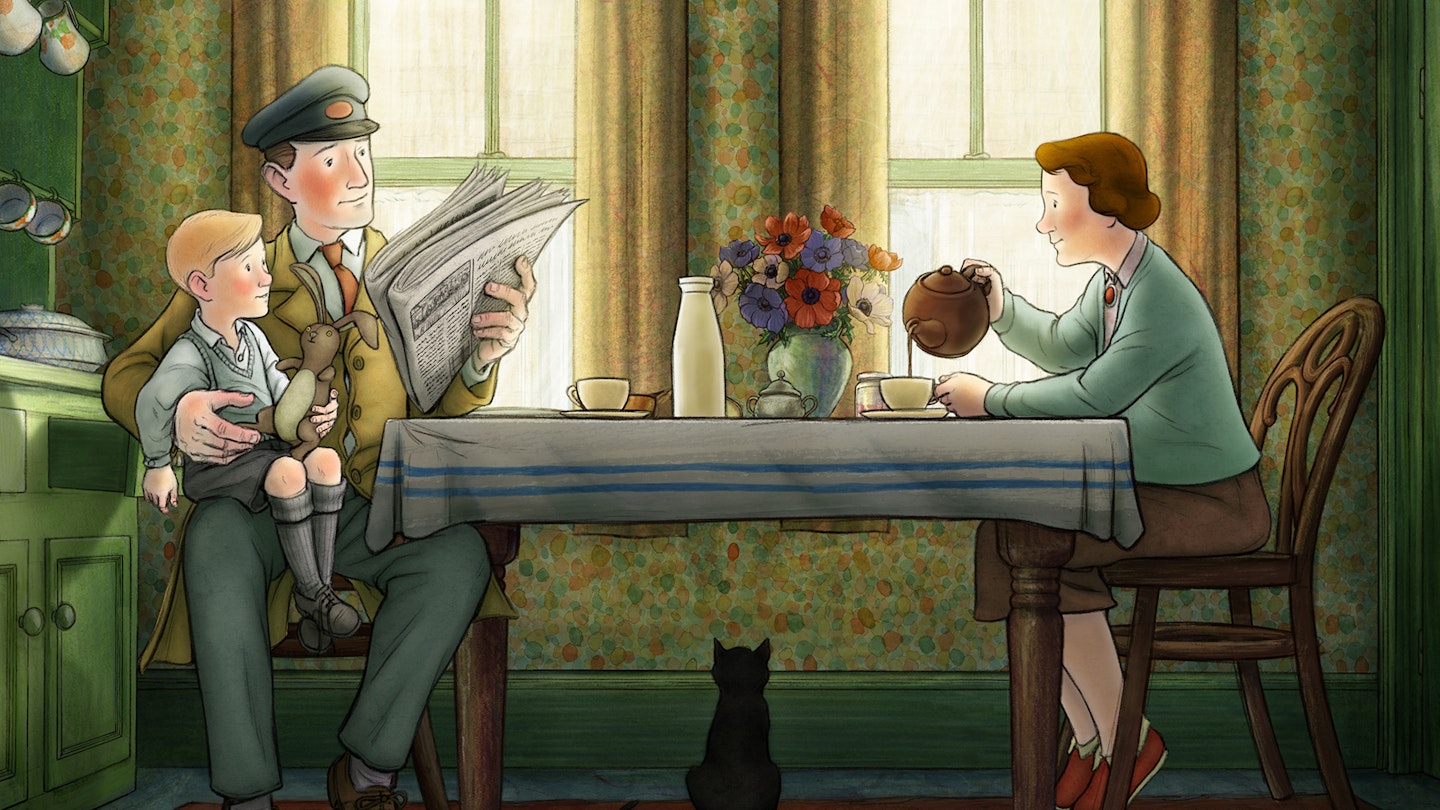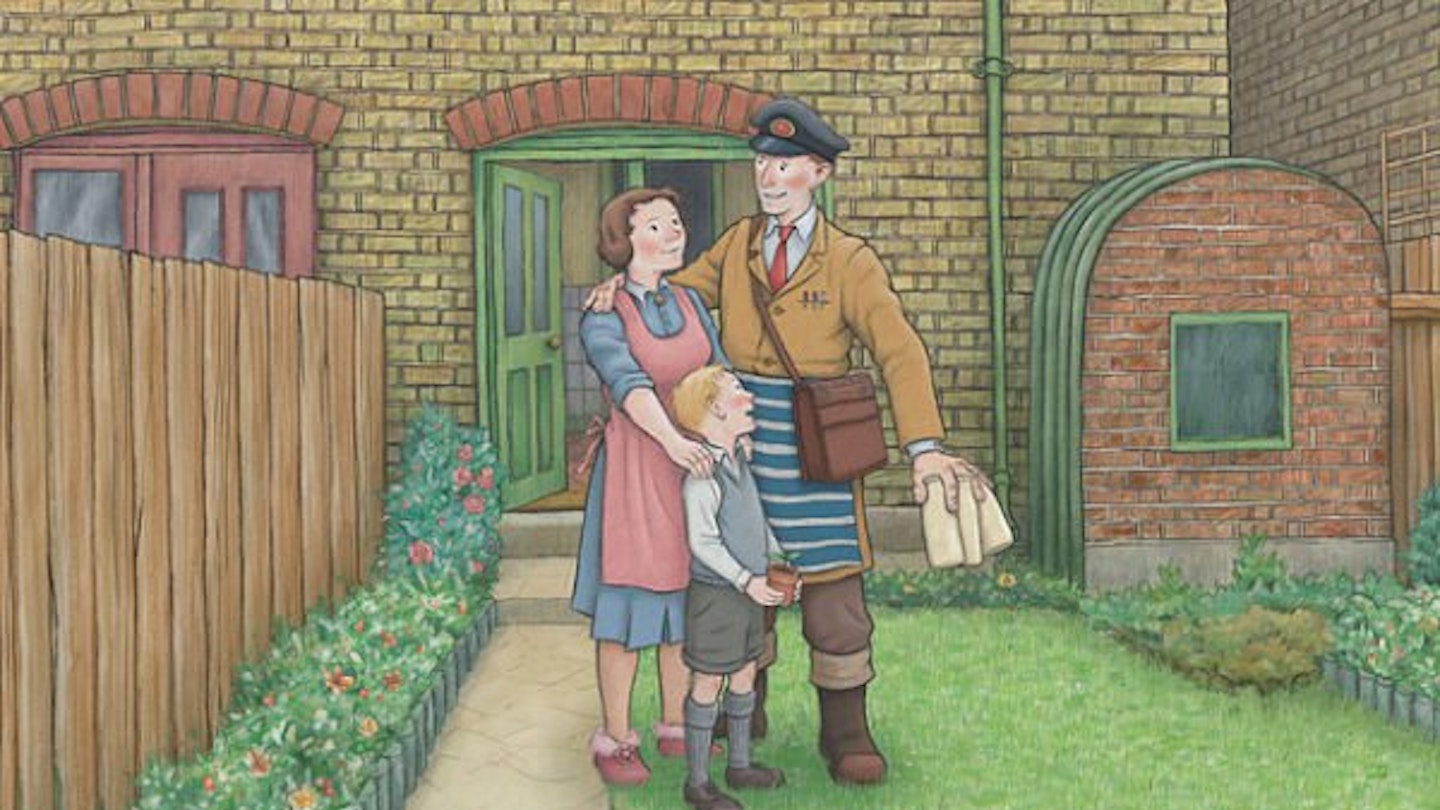There’s a live-action prologue to Ethel & Ernest, in which Raymond Briggs explains how his parents would have been pleased, but slightly embarrassed, to see their story on a bestseller list. Imagine, then, what they’d make of this — a film adaptation where they’re voiced by Brenda Blethyn and Jim Broadbent. They lived an ordinary life, but this is what makes the film so refreshing. We’re so accustomed to seeing World War II through the eyes of soldiers on the front line, or royalty, or politicians — instead, this likeable London couple give an insight into the fate of those too old to be called up, who have to watch their young son be evacuated and then build an air-raid shelter in the back yard.

A quietly moving tribute to a real-life couple.
Visually, the film stays faithful to the distinct, old-fashioned animation that Briggs is so synonymous with. There are nods to his most famous book, The Snowman, as young Raymond enjoys Christmas in his rural hideout. But the action mostly stays close to Ethel and Ernest — Blethyn and Broadbent are perfect choices, especially during the couple’s older years. After a cute courtship, as they move into their home in Wimbledon (“£825!” exclaims Ethel, wondering how they will afford it), their personalities become distinct. He’s a chipper, respectable working-class lad with a twinkle in his eye and a spring in his step, a Labour supporter who takes a moderate interest in politics. She’s a house-proud would-be mother with a kind heart and modest aspirations: God forbid anyone actually call them working-class, or suggest her son isn’t fit for a grammar school. The contrasts between them are good for a few laughs as the film drops in on their life during times of national crisis: as he strains to hear the wireless, she chides him to switch it off, busying herself with domestic matters. There are gender and class stereotypes here, but they’re tempered by the huge affection with which Briggs depicts his parents. And, as he lived it, it seems safe to assume this is how they were. Voiced by Luke Treadaway, Briggs as a young man doesn’t get off unscathed either — he gently mocks the hippy pretentions of his younger self as he leaves grammar school and attends art college. This is, of course, something his mother reacts to with horror, especially as it brings such gleeful joy to their competitive neighbour.
The problems with Ethel & Ernest’s format become clear around halfway through, when the scenes begin to feel repetitive. A major event happens, he comments on it, she expresses political ignorance, then tuts at her husband before tidying the house. And so it goes on. What began as amusing feels a little tired and predictable — and what works in the format of a graphic novel doesn’t necessarily translate to the big screen quite as effectively. The hindsight-related gags also come thick and fast: Ethel comments that TV will only be used by “the gentry”, which would be amusing had there not been several similar jokes before it. The biggest laugh-out-loud moment comes when a neighbour on the milk round asks Ernest to service his demanding wife.
Still, despite its repetitive nature, overall Ethel & Ernest proves to be a quietly moving tribute to a real-life couple who are extraordinary precisely because of their very ordinary life.

